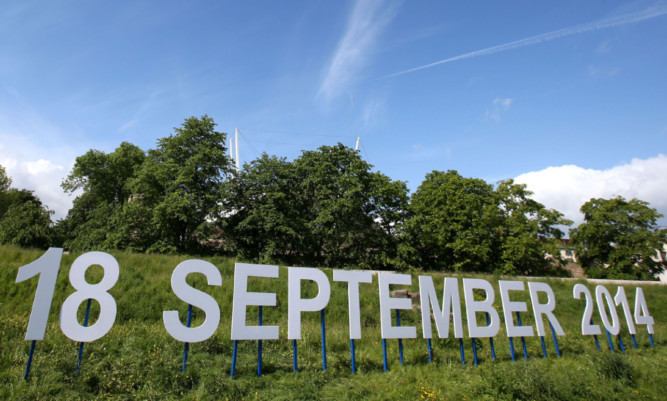As the referendum countdown enters its final phase, the Scottish Government today moves into a period of purdah. Graeme Bletcher looks at the traditional reasons for the political pause and whether it’s still relevant in our fast-paced society.
Over the last week the Scottish Government has been battering out funding announcements like they were going out of fashion. Whether it be a £14 million purse for innovation centres to improve links between education and industry or, in contrast, a £400,000 shot in the arm for our nation’s bowlers (which nobody saw coming), the promises of cash have been flooding in thick and fast.
Even the most ardent Yes man couldn’t deny the SNP timed these windfalls for maximum impact heading into the final weeks of the referendum campaign trail.
But if it wasn’t then, it might have been never. As of today the Scottish Parliament enters purdah.
The word originates from the Persian term ‘pardah’, the religious and social practice of female seclusion prevalent among some Muslim communities in Afghanistan, Pakistan and Northern India.
While the prospect of keeping Mr Salmond and Mr Darling locked up until September 18 may appeal to some, in reality all it means is that Scottish Government politicians and civil servants are now prohibited from launching new legislation or funding initiatives which could be perceived as advantageous or influential.
Traditionally the Scottish purdah lasts for 28 days in the run up to an election, allowing civil servants time to develop guidance and policy that might result from a vote.
It usually continues for a period after the count so successful candidates and ministers can be sworn in.
At the start of this month it was reported SNP ministers “asked” key civil servants to cancel holidays ahead of the period of Scottish radio silence presumably to allow last week’s funding bonanza to be pulled together prior to the watershed.
Navraj Ghaleigh, lecturer in public law at Edinburgh University, said purdah was principally designed to make clear exactly what can and can’t be stated publicly.
He added: “The idea is that you don’t want the state to be determining the outcome of elections or, in this case, a referendum.
“Generally speaking, civil servants are very careful about the sort of information they give out, anyway.
“In its proper sense, purdah is guidance for civil servants rather than politicians, although it applies to anyone in government.”
Concerns have been raised over the asymmetry of Holyrood and Westminster purdah arrangements, as legal restrictions would only apply north of the border, with UK Government ministers technically free to make national announcements.
Should the SNP break the understanding they could well find themselves embroiled in a judicial review, while their southern counterparts only have to adhere to the equivalent of a gentleman’s agreement.
In signing the Edinburgh Agreement both the Yes and No camps have agreed that the principles of purdah will be upheld to allow the historic vote to proceed unhindered, although whether that materialises remains to be seen.
Ahead of a UK general election the purdah period extends not just to political parties but to any statisticians or academics linked to the government.
Even charities are not immune, as Make Poverty History found out when their famous “finger-click” campaign which showed celebrities such as Bob Geldof and Davina McCall clicking their fingers every three seconds to mark the death of a child was removed from television by Ofcom because it was deemed too politically sensitive.
And if TV is a purdah minefield then surely the way in which social media has exploded during the Indyref debate will prove a further tripwire, particularly, perhaps, for an over-eager ministerial aide with an itchy Twitter-finger.
How easy would it be to post the wrong piece of information while embroiled in an ill-advised online argument over who gets custody of EastEnders?
Mr Ghaleigh said: “If such a slip did occur it wouldn’t come from a civil servant, it might be made by a minister or possibly a special adviser.
“To break purdah intentionally would be a hugely risky tactic for either side of the referendum debate in terms of how it would be perceived.”
Purdah doesn’t apply everywhere, and in Norway the statistics office releases special presentations daily in the last three weeks of an election campaign with no controversy.
It seems, then, that it’s fair to question whether the device remains necessary in an age where the electorate is more informed than ever before.
Realistically, how likely is a floating voter to be seduced by a last minute tax-break policy that would be instantly decried by the opposite side?
